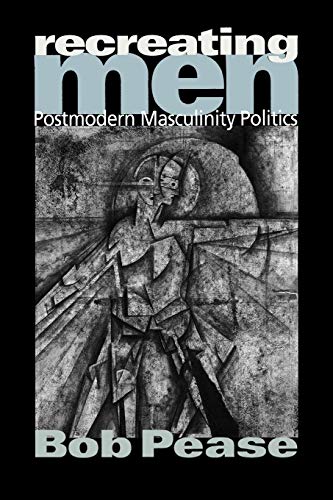Recreating Men
Professor Bob Pease is the Chair of Social Work in the School of Health and Social Development. He has published over 80 refereed journal articles and book chapters and is author of Men and Sexual Politics: A Profeminist Approach (Dulwich 1997), Recreating Men: Postmodern Masculinity Politics (Sage 2000), Men and Gender Relations (Tertiary Press 2002) and Undoing Privilege: Unearned Advantage in a Divide World (Zed 2010) and co-editor of Transforming Social Work Practice: Postmodern Critical Perspectives (Allen and Unwin 1997), Working With Men in the Human Services (Allen and Unwin 2001); A Man’s World? Changing Men’s Practices in a Globalized World (Zed 2001); Critical Social Work (Allen and Unwin 2003), International Encyclopedia of Men and Masculinities (Routhledge 2007); Critical Social Work: Theories and Practices for a Socially Just World (Allen and Unwin second edition 2009; Migrant Men, Critical Studies of Masculinities and the Migration Experience (Routledge 2010) and Men and Masculinities Around the World: Transforming Men’s Practices (Palgrave 2011). ... Read more Read less
One of the most central issues for women's prospects for equality is whether man can and will change. Changing the social relations of gender will involve changing menÆs subjectives as well as their daily practices. This book asks whether this is possible. Bob Pease examines how men, who are supportive of feminism, are responding to the feminist challenge, through an exploration of their experiences and dilemmas in trying to live out their feminist commitment and resist hegemonic forms of masculinity. The book is driven by practical as well as theoretical concerns, and aims to develop strategies that will promote the process of change towards equality in gender relations. Drawing on a critical postmodern theoretical framework, Pease argues that it is possible for men to reposition themselves in patriarchal discourses and to reformulate their interests in challenging gender domination. Recreating Men will be invaluable reading for academics and students of gender studies, and of interest to students of sociology, psychology and political sociology ... Read more Read less











